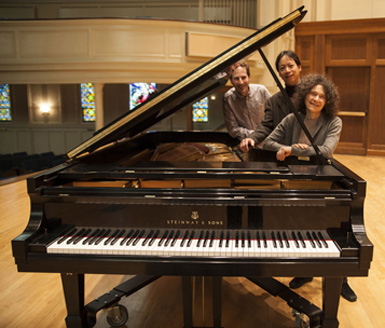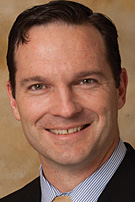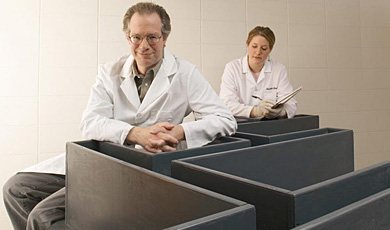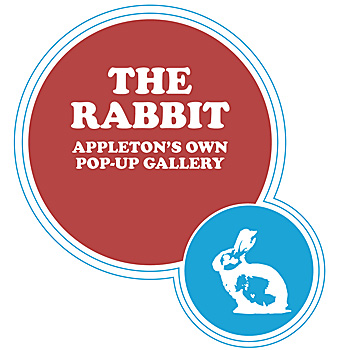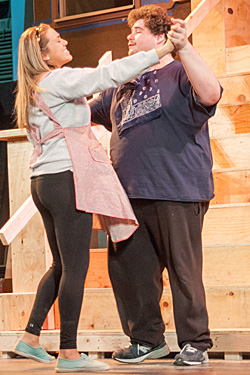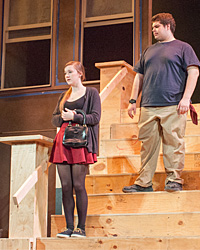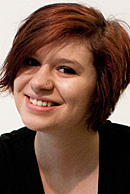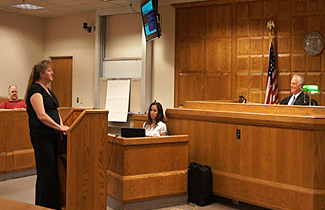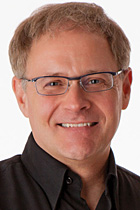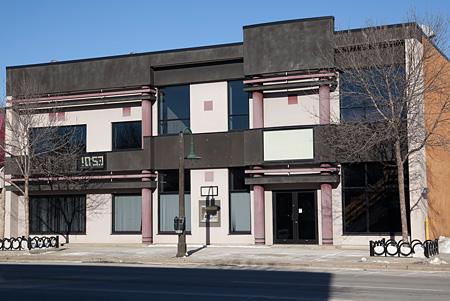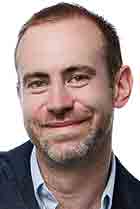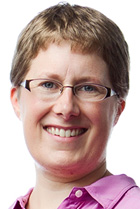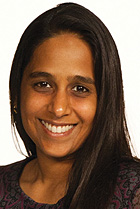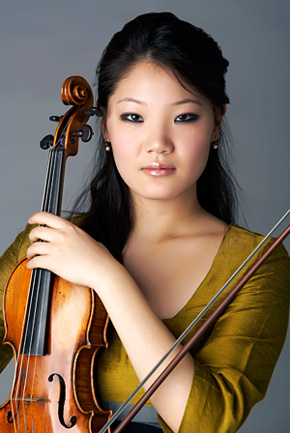Just weeks after a staging of Elmer Rice’s play version of “Street Scene,” a day-long snapshot of life in a “mean” quarter of New York City, the Lawrence University Conservatory presents the opera of the same story with music by Kurt Weill and lyrics by poet Langston Hughes.
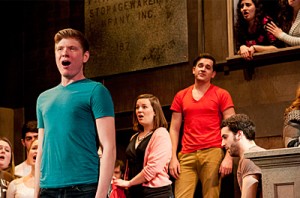
Performances in Stansbury Theatre of the Music-Drama Center will be at 7:30 p.m. March 6-7-8 and with a 3 p.m. matinee performance Sunday, March 9. Tickets, at $10 for adults and $5 for seniors/students, are available through the Lawrence Box Office, 920-832-6749.
Assistant Professor of Music History Erica Scheinberg will provide a brief introduction to Weill and “Street Scene” beginning at 6:45 p.m. prior to each performance.
Premiering in 1947, the opera was Weill’s embrace of the American musical style, combining opera, popular song, Broadway and jazz.
“Having fled Nazi Germany, his goal was to create a new kind of opera that reflected the diversity of his adopted country,” said Bonnie Koestner, vocal coach of the production.
The opera’s diversity is also reflected in the double-cast production that features 60 actors onstage, accompanied by the Lawrence Symphony Orchestra under the direction of conductor Octavio Más-Arocas.
“Our audience will be astonished by the depth of talent in both casts and will immediately connect with Weill’s rich and tuneful score,” Koestner added.
Like the play, the opera, follows the Maurrant family — Anna, unhappily married to the brutish stagehand Frank, and their two children, Rose and Willie — and their neighbors through an exceptionally hot 24-hour period in the summer of 1929. Anna, who is having an affair with Sankey, the neighborhood milkman, is the subject of much gossip among the others living in the brownstone where the entire production is set, while Rose navigates a romance with her Jewish neighbor Sam Kaplan.
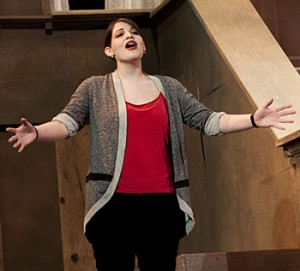
Professor Timothy X. Troy, who is directing the opera, noted the uniqueness of presenting back-to-back productions based on the same story.
“Producing both works allows us and our audiences to explore the whole process of adaptation,” he said. “Rice, Langston Hughes and Weill joined their efforts to reimagine the play as an opera. They chose core themes, explored relationships, and developed the context of the play’s action supported with orchestra and song. We hope our audience’s will take advantage of this truly unique opportunity. Anyone who attended the play first, now seeing the opera will provide the unusual experience of thinking like the composer and librettist.”
The performance is funded in part by the Kurt Weill Foundation for Music, Inc., New York, N.Y.
About Lawrence University
Founded in 1847, Lawrence University uniquely integrates a college of liberal arts and sciences with a nationally recognized conservatory of music, both devoted exclusively to undergraduate education. It was selected for inclusion in the Fiske Guide to Colleges 2014 and the book “Colleges That Change Lives: 40 Schools That Will Change the Way You Think About College.” Individualized learning, the development of multiple interests and community engagement are central to the Lawrence experience. Lawrence draws its 1,500 students from nearly every state and more than 50 countries.
